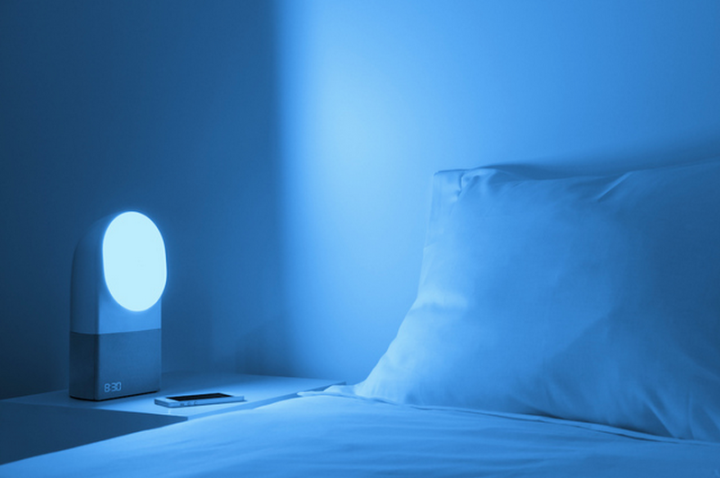
What makes it different you ask? Sensors. Lots of sensors. Unlike Philips’ wake up light (which is really the only noteworthy light on the market at the moment), Aura is equipped with a sensor pad that slips under your pillow top or tempurpedic mattress topper. Using finely-tuned algorithms, the pad can collect data on the sleeping habits of one or two people, apparently with far better accuracy than smartph0ne, or wristband-based sleep tracking methods. It picks up on “micromovements” which, according to Withings, are far more subtle than the simple tossing and turning that most fitness trackers use, and can even detect your breathing cycles and heart rate. This detailed data gives much deeper insight into the nature and quality of your sleep.
And that’s only half of it. Using all this uber-specific data form the pad under your mattress, Aura can dynamically adjust the alarm unit to wake you up more gently when you’re at the lighter part of your sleep cycle, rather than abruptly during a specific time.
It’s also worth noting that since Aura is a wake-up light, it’s equipped with a color-changing lightbulb that helps ease you awake. It’s been scientifically proven that when certain wavelengths of light hit your eyes, your brain temporarily halts the production of melatonin, the chemical that causes you to feel sleepy when you’re in dark places. Even just a small amount of light bleeding through your closed eyelids can provide a significant energy boost in the morning and make getting out of bed less of a struggle.
Aura can be used in combination with Withings’ existing suite of health products to provide a more complete picture of your overall health and the company says it’s aiming to ship the device starting in spring, 2014. The entire kit, including one sensor pad and one nightstand speaker/light will cost $299. That’s steep compared to the Philips wake-up light at $99, but considering this is the first product to combine sophisticated sleep tracking with lights, it might be worth it if you have trouble waking up in the morning.



